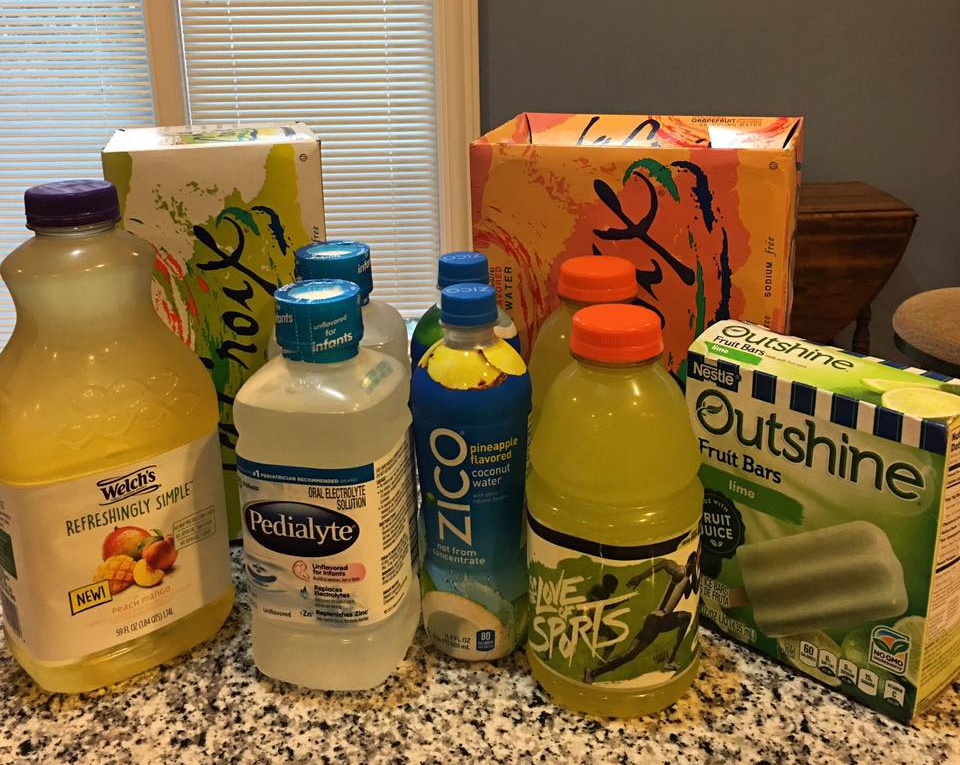When should I get screened?
By age 35, you should talk with your doctor about your risk level and discuss which colon cancer screening option is right for you based on your family medical history. Men and women of average risk should start screenings by age 45, but many people may need to be screened sooner. If you have a family history of colon cancer or polyps, you should start screening 10 years younger than the age of your relative at the time of their diagnosis. If you do not have a doctor, contact your local health department.
For more information on screening ages click here.
What screening TEST should I choose?
There are two types of at home screening tests. The FIT (fecal immunochemical test), that should be done once a year, and the stool DNA test, that is done every three years. It may also be used between colonoscopy as an extra measure with some insurers.
Colon tests include colonoscopy, flexible sigmoidoscopy, and virtual colonoscopy. While all three of these tests allow doctors to check for polyps and cancer, colonoscopy is the only test that allows the doctor to check inside the entire colon and remove polyps.
Learn more by visiting our Screening Options page.
Screening Options Where To Get Screened Near Me
No butts about it: Tackling excuses
- “I can’t afford it.”
- If you are insured, Kentucky has some of the best laws regarding private insurance coverage for colon cancer screening. Refer to our “Legislation and Coding Update” page.
- If you are currently uninsured or underinsured, you may qualify for a free colonoscopy, take-home stool test, or other no-cost screening services. Contact the Kentucky Colon Cancer Screening and Prevention Program at 859-309-1700 or 877
-597-4655
- “I’m scared about the test.”
- Talk with your doctor about any concerns, the screening options available, and the pros and cons of each test.
- “No one in my family has had colon cancer.”
- You do not have to have a family history to get colon cancer. 75% of people diagnosed with colon cancer have no family history.
- “I don’t have any symptoms.”
- Just because you do not have symptoms does not mean you do not need to be screened. Colon cancer is preventable and treatable.
prep doesn’t have to be so bad.
- Split your prep time. Taking half of the prep the evening before and half the morning of the procedure is becoming more common,” says Harry Sarles, MD, president of the American College of Gastroenterology. With this type of prep, you typically need to take only one day off from work. Research shows this method clears the bowels more effectively.
- A few days before the colonoscopy, start eating a low-fiber diet: no whole grains, nuts, seeds, dried fruit, or raw fruits or vegetables to ensure the prep your doctor prescribes is effective and works quickly.
- Don’t forget flushable wet wipes! Your butt will be pretty sore. You will be thrilled to have them on hand (or butt)!
- Make that prep taste better! Mix in some Crystal Light or Kool-Aid powder (NOT red, blue, or purple) or add some ginger or lime
- Drink it chilled!
- Drink it through a straw placed far back on your tongue, bypassing the taste buds in the front of your mouth. This may make the taste more tolerable.
- Hold your nose and drink it as quickly as possible.
- Quickly suck on a lemon slice after you finish each glass.
- Hold a lemon or lime under your nose while you drink.
- Suck on a hard candy after each glass.
Share your story!
-
-
-
-
-
-
- Talk about how it wasn’t that bad of an experience.
- Post about it on Facebook, Twitter, other social media outlets.
- Talk to your family and ask if they have been screened for the most preventable cancer.
- Share your story on our web site.
- Tell them that you SHARE because you CARE!!
-
-
-
-
-

You must be logged in to post a comment.